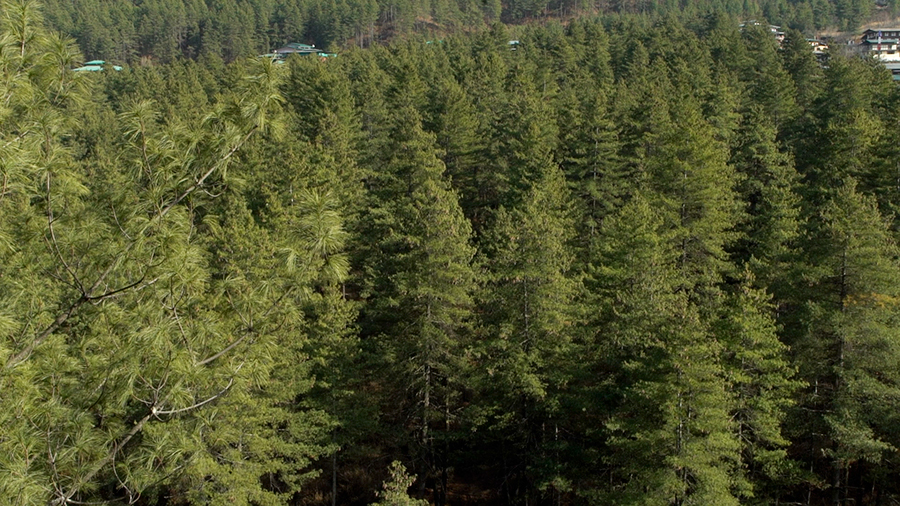
To meet domestic demand for timber, the Ministry of Energy and Natural Resources is exploring the feasibility of selling timber extracted from the forest thinning process in the country. The ministry initially planned on exporting extracted timber when the forest thinning pilot project was initiated, last year.
Some 135 truckloads of timber will be extracted from forests in Thimphu as part of the forest thinning pilot project. The extracted timber was to be exported to foreign countries to earn foreign exchange and offset the trade deficit.
However, the energy and natural resources minister during the recent Meet the Press session said the ministry needs to explore the domestic market for timber before exporting them.
“We cannot simply let the trees rot in the forest. There is a need to carry out the thinning process. However, the process regarding the export of timber is not yet finalised. The ministry is working on the possibilities. However, before we export timber, we have to evaluate the demand for timber within the country,” said Gem Tshering, the Minister for Energy and Natural Resources.
At the Meet the Press, the Prime Minister also highlighted the potential of making forest resources a source of revenue.
Prime Minister, Tshering Tobgay said, “Today, people buy a lot of engineered wood products from countries like India, Myanmar, Thailand, and China. We have the raw materials to make those ourselves. So, if we can produce engineered wood products, there are demands within our country. Moreover, if we can make products that meet international standards, we can even export them.”
According to the Department of Forests and Park Services’ National Forest Inventory report, 64 per cent of Bhutan’s total forest area is classified as very dense.
Thus, to ensure healthy forests, the thinning process was found important, all the while generating revenue for the country.
Karma Samten Wangda
Edited by Sangay Chezom






